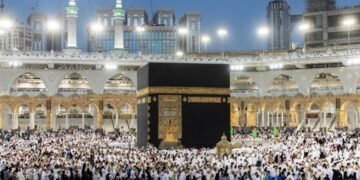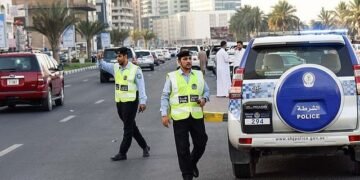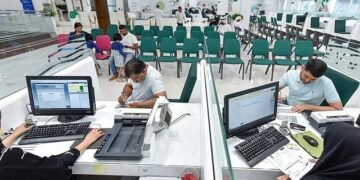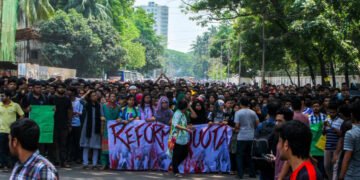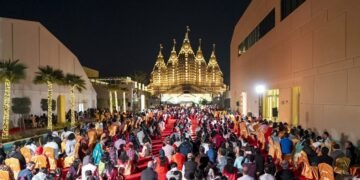As temperatures increase, residents are advised to stay hydrated, refrain from going under direct sunlight, and limit outdoors activities during mid-day
Temperatures in the UAE have surpassed the 50°C mark this week ahead of peak summer. According to the National Centre of Meteorology (NCM), the highest temperature recorded in the country on Tuesday was 50.3°C in Um Azimul (Al Ain) at 2pm.
Popular Emirati photographer Rashid Aziz also posted a video on Monday recording a sweltering temperature of 50.6°C displayed on the National Meteorological Centre panel in Al Shawamekh, Abu Dhabi.
The most intense summer period in the region typically starts from mid-July and extends through the end of August. Alongside the high temperatures, humidity levels may soar to 90 per cent, or dust storms originating from the desert can occur.
Residents across the country have been enduring the summer heat and humid conditions over the past couple of days, with temperatures hovering around the 49-50°C mark. On June 21, a temperature of 49.9°C was recorded in Mezaira (Al Dhafra region) at 3:15pm as it coincided with the summer solstice, the longest day of the year, lasting 14 hours.
As temperatures increase in the country, doctors have urged residents to take precautionary measures as cases of heat stroke and heat exhaustion rise. Residents have been advised to stay hydrated, refrain from going under direct sunlight, and limit going outdoors during mid-day.
In line with limiting activity during the hottest times of the day, the UAE government has implemented the midday break, which prohibits work under direct sunlight and in open-air areas between 12.30pm and 3.00pm, from June 15 to September 15. In addition, the government and private sectors have collaborated to set up over 6,000 rest stations for delivery workers during the break. These stations will be shaded, and be equipped with cooling devices and cold water.
In August last year, the met department had recorded the hottest day of the year in UAE, with the mercury reaching 50.8°C in Owtaid (Al Dhafra Region) in Abu Dhabi at 2.45pm.
During Haj 2024, the death toll due to the intense heatwave exceeded 1,000, with temperatures rising as high as 51.8°C on June 17.
Different parts of the world are battling with intense heatwaves, forcing schools to close, and leaving people to desperately seek air-conditioned areas.




